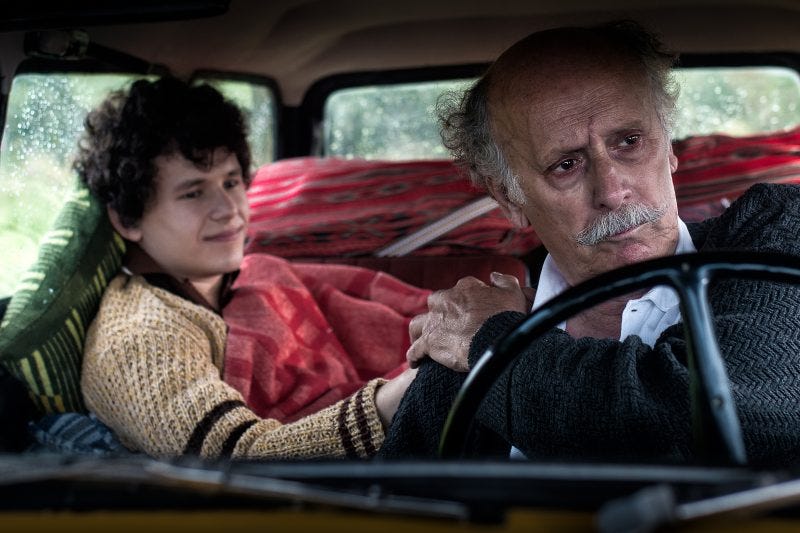Heartland: That Trip We Took with Dad

For tickets and show times, please click here.
Picture this: you live in Romania in 1968. Stalin’s been dead for more than a decade yet his movement still lives on in your country, making your disgust in Stalin a major concern in the community if anyone finds out. Even though neighboring countries are experiencing revolutions and changes for the better, you’re stuck in a country that you feel alien in. It also doesn’t help that your father is slowly dying and your brother is not keeping his anti-Stalin ideas to himself. This begs the question: what can you do? This is just the tip of the iceberg for Mihai Reinholtz, one of the main characters in the German film “The Trip We Took with Dad” (or, in German, “Die Reise mit Vater”).
The drama follows the Reinholtz family as they decide to take a trip to the German Democratic Republic (GDR) for a vacation. Mihai Reinholtz (the eldest brother) is a doctor that tries his best to do what he can to keep his family safe regardless if he agrees with the decision. Emil Reinholtz (the youngest brother) is a rebellious soul that loves writing protest songs and being with his girlfriend Neli, totally oblivious of what his protests could actually do to his future. The father, William Reinholtz, is a man that is dealing with an infliction given to him when he was younger, resulting in a forgetful and sad personality. These three head out a day early for their vacation when Emil decides to get into trouble he might not be able to get out of. When the trip gets to a point where emotions are heated, Mihai reveals that their trip to the GDR is not a vacation. In reality, it’s a last resort for William’s condition because his medicine is starting to lose its effectiveness.
Looking back on the film, I was extremely engaged with the premise and the unfolding of the events. The dysfunctions in the Reinholtz family lead to great dramatic moments, especially when all three members are well acted. Alexandru Margineanu’s Mihai is incredibly relatable and intense, Razvan Enciu’s Emil is a good, rebellious counterweight to Mihai’s cynicism, and Ovidiu Schumacher’s William leads down a depressing, eye-opening path that you can’t help but be sucked in by when William decides to open up more. While the secondary characters are really good as well, it’s the three leads that make this film great. In my opinion, the film is worth seeing just to see them bounce off each other and deal with the “current” events as a family.
The film’s cinematography is great as well. The film always seem to find the best angles to capture the emotions between the Reinholtzs, even when they’re separated. There were a few moments where scenes were underlit but they thankfully never undermined the emotional impact of those scenes. As for the musical aspect of the film, the soundtrack was great. Since the two brothers are both love music, it makes sense to have a soundtrack that blends into the era well. Even the ending theme (which is pretty somber compared to the rest of the film) was the perfect cherry on top.
Even though I really enjoyed this film, like most films, it has its flaws. The third act is definitely the weakest (both narratively and pacing-wise), leading to an ending that works but isn’t overly satisfying when compared to the journey to it. Even with that and some underlit scenes in mind, I would recommend seeing this film at the festival this year. It’s a great drama with a great cast, story, and look attached to it. It does what every period piece should do: pull you into the narrative emotionally regardless of any previous knowledge.



